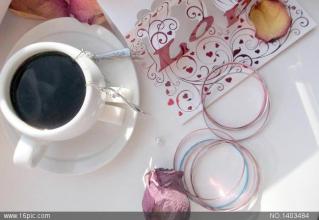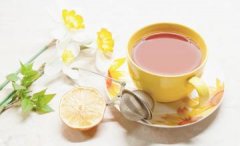A brief introduction to the History and Culture of the Origin and Development of slightly sour boutique Coffee in Jinchu Valley of Kenya

How did the French missionary bourbon come from? I believe many people will have great doubts about this. Cat Ye will popularize this French missionary bourbon species for you today. Let us first look at the island of Bourbon in eastern Madagascar on the east coast of Africa. In 1646, the island became a French colony and was named Bourbon to show off the prestige of the French Bourbon dynasty. At that time, the only coffee found on the island was a natural decaf named "Mauritiana", which tasted bitter and had almost no market. Until 1715, the French shipped a batch of mutants of iron pickups from Yemen. The beans were round and small, and they were planted there with great success. In order to distinguish it from the long bean of the tin pickup, the fond French named the variety bourbon round bean, from which the bourbon species got its name until 1900, when a French missionary was introduced from Bourbon island to central and eastern African countries such as Kenya, Tanzania and Rwanda. This is what we are going to talk about the French missionary bourbon native variety, and then derived a lot of varieties, the more classic is SL28. The two breeds of SL34, another Kenyan multi-door Lugatti AA TOP sold in the Maoye store, belong to the two species of SL28,SL34. Kenyan coffee beans are rich in berries, slightly sour and thick aroma, and are very popular among Europeans. Especially in Britain, Kenyan coffee has surpassed Costa Rican coffee to become one of the most popular coffees. It is also a must in many cafes. The size of the beans is medium to large, the meat is thick and round, the coffee beans taste good, the taste is thick and full-bodied, the acidity is moderate, and exudes a unique flavor; the grade is divided into seven grades according to the size of coffee beans, and the specification Thiriku, which is divided into six grades from top to bottom, was established in 2000, composed of six different villages and currently has about 1900 members. Because of the very high altitude of Thiriku, the Thiriku cooperative is dominated by tea farmers and coffee farmers. The water washing station is set up at a location of nearly 1900 meters. Interestingly, the coffee washing station of the Thiriku Cooperative is set up in the tea garden. The higher and lower temperature positions allow the washed coffee beans to have a longer fermentation time and when dry, the fermentation method used by Xilico is three times longer than that in many other planting areas, up to 72 hours, so coffee beans with good flavor are formed.
Kenyan coffee beans the Kenyan government takes the coffee industry very seriously, where it is illegal to cut down or destroy coffee trees. Kenyan coffee buyers are world-class high-quality coffee buyers, and no other country can grow, produce and sell coffee on a continuous basis like Kenya. All coffee beans are first acquired by the Kenya Coffee Commission (CoffeeBoardofKenya, CBK), where they are identified, graded, and then sold at weekly auctions, where they are no longer graded. The Kenya Coffee Commission only acts as an agent to collect coffee samples and distribute them to buyers so that they can determine the price and quality. The auction in Nairobi is for private exporters, and the Kenya Coffee Commission pays growers a price below the market price. The best coffee grade is bean berry coffee (PB), followed by AA++, AA+, AA, AB and so on. The fine coffee is shiny, delicious and slightly alcoholic. Auctions are also organized to meet the needs of dispatchers. This kind of auction usually has a small auction volume (3-6 tons each), with samples with the grower's logo for buyers to enjoy. After the auction, the exporters pack according to different flavors, different qualities and the quantity required by the blenders. This provides a great deal of flexibility for the dispatcher. Quality-conscious Germans and Scandinavians are long-term buyers of Kenyan coffee.
On an international scale, the increase in the number of Kenyan coffee is obvious, with exports of 800000 bags in 1969-1970 and increased to 2 million bags in 1985-1986. Now the yield is stable at 1.6 million bags, with an average yield of about 650kg per hectare. Even before coffee prices skyrocketed in recent years, the average price of coffee in Kenya had been rising. Prices in 1993-1994 were 50% higher than they were 12 months ago. The rise in prices is mainly the result of increased demand.
Some buyers, especially Japanese businessmen, have expressed dissatisfaction with the Kenyan coffee industry system. Some businessmen say that the quality of coffee in the country has declined, and point out that buying directly from farmers may be a way to improve the quality. But in any case, Kenya's detailed rules and regulations and sound procedures are a model for all coffee-producing countries.
Kenyan Coffee became more famous with the sensation of the Hollywood movie OutofAfrica. Karen, the heroine played by Meryl Streep (MarylStreep), is a writer and coffee plantation owner. Many people may still remember the beautiful scenery and the magnificent sunset in the film, but what is even more unforgettable is Karen's dream of having a coffee plantation in Africa.
Kenyan coffee-flavor
High-quality Kenyan coffee is aromatic, full-bodied and fruity, with a rich and perfect taste. Kenyan coffee has a wonderful fruit flavor, tastes like BlackBerry and grapefruit, and is a favorite of many coffee gluttons. This coffee has an excellent medium purity, crisp and refreshing taste. It has a fresh flavor and is most suitable for drinking iced coffee in summer. When tasting this coffee, if it is paired with sour fruits such as grapefruit, it will certainly give me the best coffee experience. "not much like coffee, but a bit like fruit tea" is the common feeling of many people about this kind of shallow roasted Kenyan coffee.
In addition to having obvious and charming fruit acidity, Kenyan coffee is mostly from small coffee farmers, planted in a variety of different environments, encounter different climate and rainfall every year, and bring a variety of distinct and unique personalities. Take the AAPlus grade "KenyaAA+Samburu" as an example, the Samburu in 2001 has a strong aroma of black plum, the acidity is not high, and the taste is strong. The newly harvested Samburu in the winter of 2002 presents a completely different flavor, mulberry and green plum, with a little Nanyang spice (Spicy) flavor, after drinking, the aftertaste has the sweetness of green tea, the acidity is slightly higher than the year before, the taste is still strong. The common Kenyan taste is not strong, but it has a bright fruit-like flavor, some spicy and some red wine. This is how Kenya makes coffee fans full of expectations and surprises.
Because the French missionary bourbon is a native variety transplanted from Bourbon Island and does not have much disease and insect resistance, the yield is super rare. at present, all the French missionary bourbon species exposed to Maoye are basically treated by the sun, but the taste is very good, it is a very rare Kenyan sun bean (Kenya is usually washed). Friends who are curious about flavor really have no reason to refuse such a great bean.
This time, the French missionary sunburn in Oreti Manor Park in Kenya was planted in the Sika Plateau in central Kenya, at an altitude of 1700 meters, with a very dense flavor of lemon cream, as well as a very clean aroma of flowers and fruit. a hint of chocolate and gin quietly floated out of the cup, and the mellow thickness was excellent. Due to the use of sun treatment, the extracted coffee is full of tropical flavor. It seems that a very enthusiastic African girl whispers in your ear that her plump breasts and graceful figure are only close to your body, and you can enjoy this beautiful thing from the land of Africa very comfortably.
Important Notice :
前街咖啡 FrontStreet Coffee has moved to new addredd:
FrontStreet Coffee Address: 315,Donghua East Road,GuangZhou
Tel:020 38364473
- Prev

Mexican Coffee with Nutty Aftertaste Grind Roast Degree Treatment Method Brief Introduction
Aldumara, Mexico. Taste characteristics: large particles, with strong sweet, sour and good aroma. Best BBQ: medium or deep fried. It is characterized by smooth taste, high acidity, medium alcohol, slightly nutty aftertaste. Sweet, sour, bitter taste neutral, there is a suitable degree of sour, taste special, elegant. Although Brazilian coffee is of little professional value,
- Next

A brief introduction to the description of the flavor and aroma characteristics of Kenyan Jinchu boutique coffee
It has wonderful and satisfying aromas, well-balanced acidity, well-proportioned particles and excellent fruit flavors. The taste is so unique that there is almost no similar coffee. Kenyan coffee is characterized by a distinctive fruity aroma. Try to find this flavor in the coffee and pay attention to how it feels in the mouth. One of the common fruit aromas is citrus. Kenyan coffee has multiple layers.
Related
- Detailed explanation of Jadeite planting Land in Panamanian Jadeite Manor introduction to the grading system of Jadeite competitive bidding, Red bid, Green bid and Rose Summer
- Story of Coffee planting in Brenka region of Costa Rica Stonehenge Manor anaerobic heavy honey treatment of flavor mouth
- What's on the barrel of Blue Mountain Coffee beans?
- Can American coffee also pull flowers? How to use hot American style to pull out a good-looking pattern?
- Can you make a cold extract with coffee beans? What is the right proportion for cold-extracted coffee formula?
- Indonesian PWN Gold Mandrine Coffee Origin Features Flavor How to Chong? Mandolin coffee is American.
- A brief introduction to the flavor characteristics of Brazilian yellow bourbon coffee beans
- What is the effect of different water quality on the flavor of cold-extracted coffee? What kind of water is best for brewing coffee?
- Why do you think of Rose Summer whenever you mention Panamanian coffee?
- Introduction to the characteristics of authentic blue mountain coffee bean producing areas? What is the CIB Coffee Authority in Jamaica?

